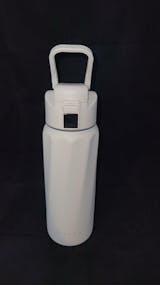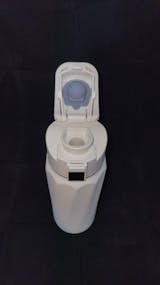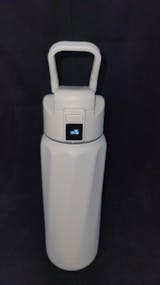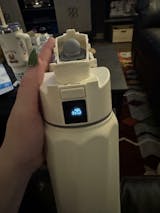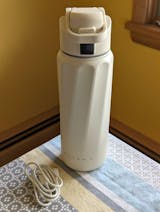
How to Stay Hydrated When Taking Diuretics
If you’ve been prescribed diuretics—often called “water pills”—you’re probably using them to help control blood pressure, reduce swelling, or manage conditions like heart failure or kidney disease. These medications work by helping your body excrete excess salt and water through urine.
While diuretics can be highly effective, they can also make it easier to become dehydrated. As your body loses more fluid, staying properly hydrated becomes a delicate balancing act. Drink too little, and you risk dehydration; drink too much, and you may overstrain your kidneys or dilute important electrolytes.
This guide explains how diuretics affect hydration and offers practical strategies to keep your body balanced and healthy while following your doctor’s advice.
Understanding diuretics and their effect on hydration

How diuretics work:
Diuretics increase the amount of salt and water your kidneys remove from the blood. This helps reduce blood volume, lowering blood pressure and relieving swelling (edema).
Types of diuretics:
- Thiazide diuretics (e.g., hydrochlorothiazide) are commonly used for high blood pressure.
- Loop diuretics (e.g., furosemide, bumetanide) – often prescribed for heart failure or severe fluid retention.
- Potassium-sparing diuretics (e.g., spironolactone) – help prevent potassium loss while removing excess water.
Impact on hydration:
Because diuretics increase urine output, they can lead to a loss of not only water but also essential minerals like sodium, potassium, and magnesium. Over time, this imbalance can cause dehydration and related symptoms if fluid intake isn’t carefully managed.
Signs and risks of dehydration while taking diuretics
Mild dehydration can creep up quickly when you’re taking diuretics. Watch for these early warning signs:
- Dry mouth or lips.
- Dizziness or lightheadedness.
- Unusual fatigue or weakness.
- Dark-colored urine.
- Headache.
More severe dehydration or electrolyte imbalances may cause:
- Rapid heartbeat.
- Muscle cramps or spasms.
- Confusion or irritability.
- Low blood pressure.
- Irregular heart rhythm.
Older adults and people with chronic conditions such as diabetes, heart disease, or kidney issues are particularly vulnerable. Regularly monitoring your hydration status is key.
Hydration strategies for people taking diuretics

1. Follow your doctor’s fluid recommendations
Everyone’s hydration needs are different—especially when you’re on medication that affects fluid balance. Some patients, such as those with heart failure, may be instructed to limit their water intake, while others may need to increase it. Always follow your doctor’s personalized advice rather than general hydration rules.
2. Drink water steadily throughout the day
Instead of chugging large amounts of water at once, sip small amounts consistently throughout the day. This steady approach keeps your body hydrated without overwhelming your kidneys.
3. Monitor your urine color
A simple, effective way to gauge hydration is by checking your urine color.
- Light yellow: well hydrated.
- Dark yellow or amber: likely dehydrated.
If your urine is consistently clear, you might be drinking more than necessary—especially if your doctor has restricted your fluid intake.
4. Include hydrating foods
Water-rich fruits and vegetables can contribute to daily hydration without adding too much liquid volume. Great options include:
- Cucumbers
- Watermelon
- Oranges
- Strawberries
- Lettuce
- Celery
These foods also provide vitamins and electrolytes that naturally support your body’s fluid balance.
5. Replace electrolytes wisely
Because diuretics can flush out electrolytes like potassium, sodium, and magnesium, it’s important to replenish them through diet.
- Potassium-rich foods: bananas, avocados, spinach, and potatoes.
- Magnesium sources: nuts, seeds, and yogurt.
- Sodium: usually replenished through normal meals—avoid overdoing it unless advised by your doctor.
If you use electrolyte drinks, choose low-sodium, low-sugar options. Avoid high-sodium sports drinks unless your healthcare provider specifically recommends them.
6. Avoid overhydration
While dehydration is a concern, drinking too much water can also be risky. Overhydration may dilute your blood's sodium levels, leading to hyponatremia. This can lead to nausea, confusion, or even more serious complications. Balance is key—don’t overcompensate.
Practical lifestyle tips
- Set reminders: Use a phone app or drink bottle reminder to remind you to take small sips throughout the day.
- Keep a refillable water bottle nearby: Having water easily accessible encourages consistent intake.
- Limit caffeine and alcohol: Both act as mild diuretics, which can worsen fluid loss.
- Track your weight daily: A sudden drop in weight may indicate fluid loss, while a sudden gain could signal fluid retention.
- Stay cool: Excessive sweating from heat or exercise increases the risk of dehydration, so adjust water intake accordingly and rest in shaded areas when possible.
When to seek medical guidance

Contact your healthcare provider if you experience:
- Persistent dizziness, fatigue, or confusion.
- Muscle cramps, irregular heartbeat, or chest discomfort.
- Swelling in your legs or sudden changes in weight.
- Constant thirst despite drinking fluids.
There’s no one-size-fits-all answer. Your ideal intake depends on your health condition, the type of medication, and your doctor’s instructions.
FAQs
Can I drink electrolyte drinks while on diuretics?
Yes, but choose wisely. Opt for low-sodium, low-sugar electrolyte beverages unless your doctor suggests otherwise.
How much water should I drink if I`m taking diuretics?
There’s no one-size-fits-all answer. Your ideal intake depends on your health condition, medication type, and your doctor’s instructions.
Conclusion
Diuretics are powerful medications that support your heart, kidneys, and blood pressure—but they require mindful hydration to work safely. Staying hydrated while taking diuretics isn’t just about drinking more water; it’s about maintaining the right balance of fluids and electrolytes.
By following your doctor’s recommendations, sipping water steadily, eating hydrating foods, and monitoring your body’s signals, you can stay healthy and prevent dehydration while getting the full benefits of your medication.













